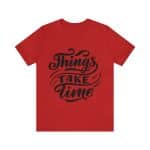A Deep Dive into Historical Beginnings
The phrase “the ball is in your court” is more than a common saying; it’s a piece of history woven into our language. To truly appreciate its meaning, we must travel back in time to the royal courts of England. In these grand halls, the sport of tennis was not just a game but a display of skill and strategy among nobles.
Look to Tennis for the Answer
Picture the scene: great courts, the sound of a bouncing ball, and the sharp eyes of competitors. This setting is where our phrase finds its roots. Tennis, especially in its early form known as “real tennis,” involved players taking turns to hit the ball. When the ball was in a player’s area of the court, it was their responsibility to hit it back. Please do so to avoid losing the point.
As we understand it today, the symbolic meaning of this phrase evolved from this literal scenario. When we say “the ball is in your court,” we’re not just talking about a physical ball or a game of tennis. Instead, we’re referring to the concept of responsibility and action.
The phrase implies that someone else’s turn is now to make a move or decision. It’s about taking charge, making choices, and being accountable for the next step. As in tennis, not responding can mean losing an opportunity or conceding an advantage.

Modern Usage and Its Impact on Daily Life
In modern communication, “the ball is in your court” has played a dynamic role. It’s a phrase that resonates in boardrooms, during negotiations, and even in personal relationships. Imagine a team leader saying this to a member regarding a project decision. It’s not just about passing on the task; it’s about entrusting and empowering the individual with decision-making. This phrase embodies the essence of delegation and trust in a professional setting.
On a personal level, the phrase often appears in situations that involve mutual decisions or when you await a response. For instance, after a first date, one might think, “I’ve expressed my interest, now the ball is in their court.”
Frequently Asked Questions (FAQs) About “Piece of Cake”
The phrase “piece of cake” is an idiomatic expression in English that means something is straightforward to do. It describes tasks or activities that can be completed with minimal effort, similar to how easy and enjoyable it is to eat a piece of cake.
Like many idioms, “piece of cake” can be used sarcastically. For example, if someone finds a task difficult but wants to downplay their struggle, they might say it’s a “piece of cake” in a sarcastic tone. It’s all about the context and the speaker’s tone of voice.
“Piece of cake” is widely understood in many English-speaking countries, including the United States, the United Kingdom, Canada, and Australia. However, its use and popularity might vary, and in non-English speaking countries, there might be a different idiom with a similar meaning.
The key lesson from this idiom is to balance optimism with realism. While it’s good to approach tasks confidently, thinking they will be easy, it’s also important not to underestimate their complexity. Always prepare adequately and pay attention to details, even if a task initially seems like it will be a “piece of cake.”
It’s a Powerful Saying
Here, it reflects anticipation and the transfer of action to another person. It’s a powerful tool in communication, subtly conveying the need for someone else to take the next step without exerting pressure. Understanding and using this phrase can enhance interpersonal dynamics, whether in professional environments or personal interactions, by clearly setting the stage for who should act next.
“The ball is in your court” is more than a saying. It’s a phrase rich in history and meaning, evolving from the royal tennis courts of England to a modern metaphor for responsibility and action. Whether in professional or personal contexts, it serves as a reminder that sometimes, the next move is not ours to make.





